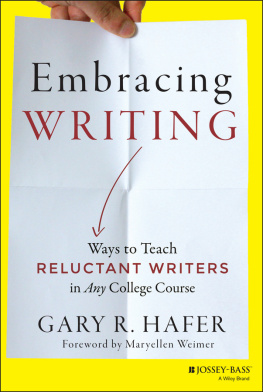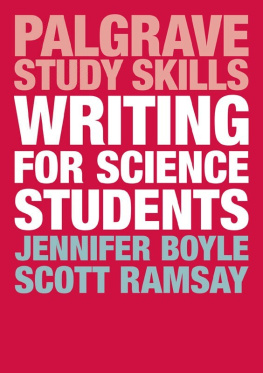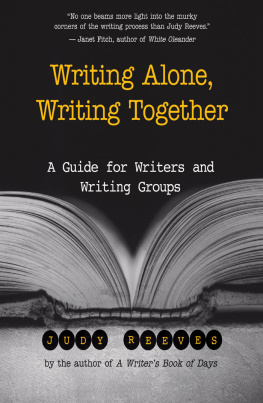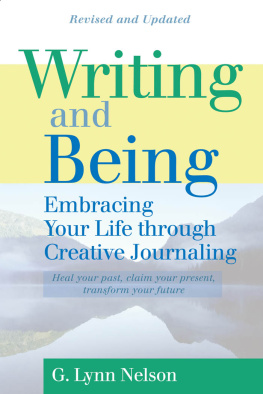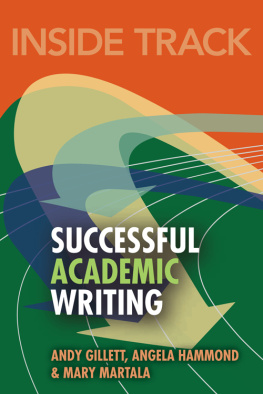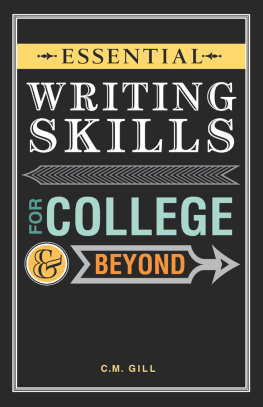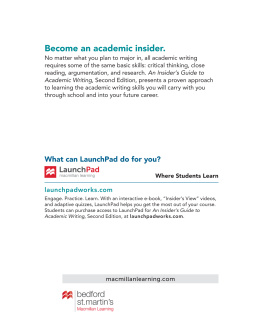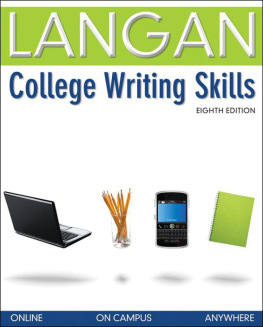
Cover design by Adrian Morgan
Cover image : Red Sky | Getty
Consulting editor : Maryellen Weimer
Copyright 2014 by John Wiley & Sons, Inc. All rights reserved.
Published by Jossey-Bass
A Wiley Brand
One Montgomery Street, Suite 1200, San Francisco, CA 94104-4594 www.josseybass.com/highereducation
No part of this publication may be reproduced, stored in a retrieval system, or transmitted in any form or by any means, electronic, mechanical, photocopying, recording, scanning, or otherwise, except as permitted under Section 107 or 108 of the 1976 United States Copyright Act, without either the prior written permission of the publisher, or authorization through payment of the appropriate per-copy fee to the Copyright Clearance Center, Inc., 222 Rosewood Drive, Danvers, MA 01923, 978-750-8400, fax 978-646-8600, or on the Web at www.copyright.com. Requests to the publisher for permission should be addressed to the Permissions Department, John Wiley & Sons, Inc., 111 River Street, Hoboken, NJ 07030, 201-748-6011, fax 201-748-6008, or online at www.wiley.com/go/permissions.
Limit of Liability/Disclaimer of Warranty: While the publisher and author have used their best efforts in preparing this book, they make no representations or warranties with respect to the accuracy or completeness of the contents of this book and specifically disclaim any implied warranties of merchantability or fitness for a particular purpose. No warranty may be created or extended by sales representatives or written sales materials. The advice and strategies contained herein may not be suitable for your situation. You should consult with a professional where appropriate. Neither the publisher nor author shall be liable for any loss of profit or any other commercial damages, including but not limited to special, incidental, consequential, or other damages. Readers should be aware that Internet Web sites offered as citations and/or sources for further information may have changed or disappeared between the time this was written and when it is read.
Jossey-Bass books and products are available through most bookstores. To contact Jossey-Bass directly call our Customer Care Department within the U.S. at 800-956-7739, outside the U.S. at 317-572-3986, or fax 317-572-4002.
Wiley publishes in a variety of print and electronic formats and by print-on-demand. Some material included with standard print versions of this book may not be included in e-books or in print-on-demand. If this book refers to media such as a CD or DVD that is not included in the version you purchased, you may download this material at http://booksupport.wiley.com. For more information about Wiley products, visit www.wiley.com.
Library of Congress Cataloging-in-Publication Data
Library of Congress Cataloging-in-Publication Data has been applied for and is on file with the Library of Congress.
ISBN 978-1-118-58291-6 (cloth);
ISBN 978-1-118-58378-4 (ebk.);
ISBN 978-1-118-58369-2 (ebk.)
FIRST EDITION
The Jossey-Bass Higher and Adult Education Series
To my wife, Marjorie, from whom I've learned much, and still love much.
Foreword
How do I know when a book is really good? It changes what I do. A good book makes me think. It makes me want to share its content with colleagues. It makes me want to read more on the subject. But after reading a really good book I'm doing some things differently, and that's what happened with this book.
Like many faculty I've always thought that freewriting was kind of a waste of my time. How can you start writing when you don't yet have the ideas? What's the point of taking the mess and muddle in your mind and putting it on paper? How can this writing free-for-all contribute anything toward the polished prose of academic scholarship? And writing it by hand when I can key text three times as fast? How sensible is that?
I wasn't even sure it was a good use of student time. So many of them don't write well, and I'm suppose to encourage the writing equivalent of Just Do It. All those errors in spelling, grammar, punctuation, and sentence structure they get to make freely and without consequence. And that's supposed to improve their writing?
Gary's book is big on freewriting. His arguments are well constructed and persuasive, but I still wasn't convincedor at least I didn't think I was. Then one day in Staples I found myself buying three bright, spiral notebooks for 99 cents each. I slid mechanical pencils into their spines and put one in my purse, one in the car, and one next to my favorite chair. Without much conscious consideration, I started writing in themhere and there, now and thenmostly on current projects, a blog post, a book chapter, ideas for a presentation, feedback on a colleague's paper. The writing was as awful as I expected, although I was surprised by how quickly the ideas came when I didn't think I had any. I was also taken aback by how easy it was to clean up the muddle once I had it down. Even when I didn't look at the freewriting in the notebook, writing the real first draft was a breeze. Normally I experience first drafts as hard-fought battles against strong headwinds. Before too long I was back in Staples buying more notebooks.
Embracing Writing is a book that offers fresh versions of various ideas. Freewriting isn't a new idea, but how Gary recommends you use it in class and in your own writing is. He doesn't preach or hype about how well it and the other strategies he recommends work. He doesn't tell you to try them. But when you do, you discover that he's right, and you learn new things about approaches you thought you understood. I so appreciate books that get beyond rehashing the ideas of others, books that build new structures out of familiar ideas, and books that challenge conventional thinking about the way things are or the way we think they have to be.
The Writing Across Curriculum (or WAC) movement is a relevant example here, too. Its proponents have managed to convince most faculty that students need to be writing in every coursenot just in their English and composition courses. It didn't take a lot to persuade most of us; we see how students write. But to many teachers adding writing assignments seems like one more thing good teachers are supposed to do. The WAC movement has helped, generating a plethora of writing activities and assignments that teachers can use. But to get students to take them seriously, most of them have to be graded. Teachers new to teaching writing have discovered that grading written work is a time-consuming struggle with disappointing results. It's hard to see much improvement in student writing, or there's no change in how fervently they disdain the activity. It feels like WAC and the rest of us are doing some wheel spinning.
Gary's observations about all this are provocative. He thinks the teachers now trying to improve student writing are often not all that in love with writing themselves. They have chosen fields where they can advance knowledge in labs, by solving problems or with other kinds of hands-on work. However, writing is used to advance knowledge in every field. Faculty who don't like to write still have to. Professional advancement often depends on it: publish or perish. Could they too be reluctant writers? Do they have trouble getting their papers started? Do they wait until the last minute before they begin writing, sometimes missing deadlines? Do they struggle with rewrites, find criticism painful, and handle it poorly? Could the solutions that Gary has discovered work well with reluctant writers in the classroom also work for their reluctant writer teachers?
Next page
